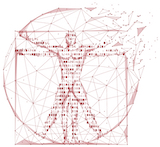

- This event has passed.
DiSIA Double Welcome Seminar – Fiammetta Menchetti & Marta Pittavino
June 1, 2023 @ 12:00 - 13:00

Speaker: Fiammetta Menchetti
Title: From high school creativity to cultural heritage conservation: a journey in causal inference
Abstract:
In this talk, I will provide an overview of my research activity in causal inference for time series data. Starting with
C-ARIMA and Bayesian multivariate structural time series models that were part of my PhD thesis, I’ll then give
you a glimpse into my recent collaborations, including a randomized control trial to assess the impact of FABLAB’s
courses on the creativity of Italian high-school students and a machine learning method for counterfactual forecasting
for short panels in the absence of controls. The talk will then focus on the PNRR research activity, which aims
to study the evolution of the web cracks on Brunelleschi’s Santa Maria del Fiore Dome as part of an ongoing and
fascinating project on cultural heritage conservation
Speaker: Marta Pittavino
Title: A tale on statistical methods, and their applications, developed around Europe
Abstract:
In this talk, I will present some statistical methods that I exploited for my research. I will begin by presenting
the Additive Bayesian Network (ABN) multivariate methodology, a data-driven technique particularly suitable for
inter-dependent data. I will show two applications of ABN in the veterinary epidemiology field. Then, I will
move to the illustration of a Bayesian hierarchical model applied to nutritional epidemiology. Specifically, this
model relates a measurement error model with a disease model via an exposure model. Afterwards, I will provide
examples of quantile regression and forecasting techniques applied to a specific philanthropic-social dataset on
charitable deductions for tax incentives for the Canton of Geneva population. Last, but not least, I will conclude
this statistical modelling journey by introducing the current demographic project for the “Forecasting kinship
networks and kinless individuals” and show the first preliminary results of kinless of countries around Europe.